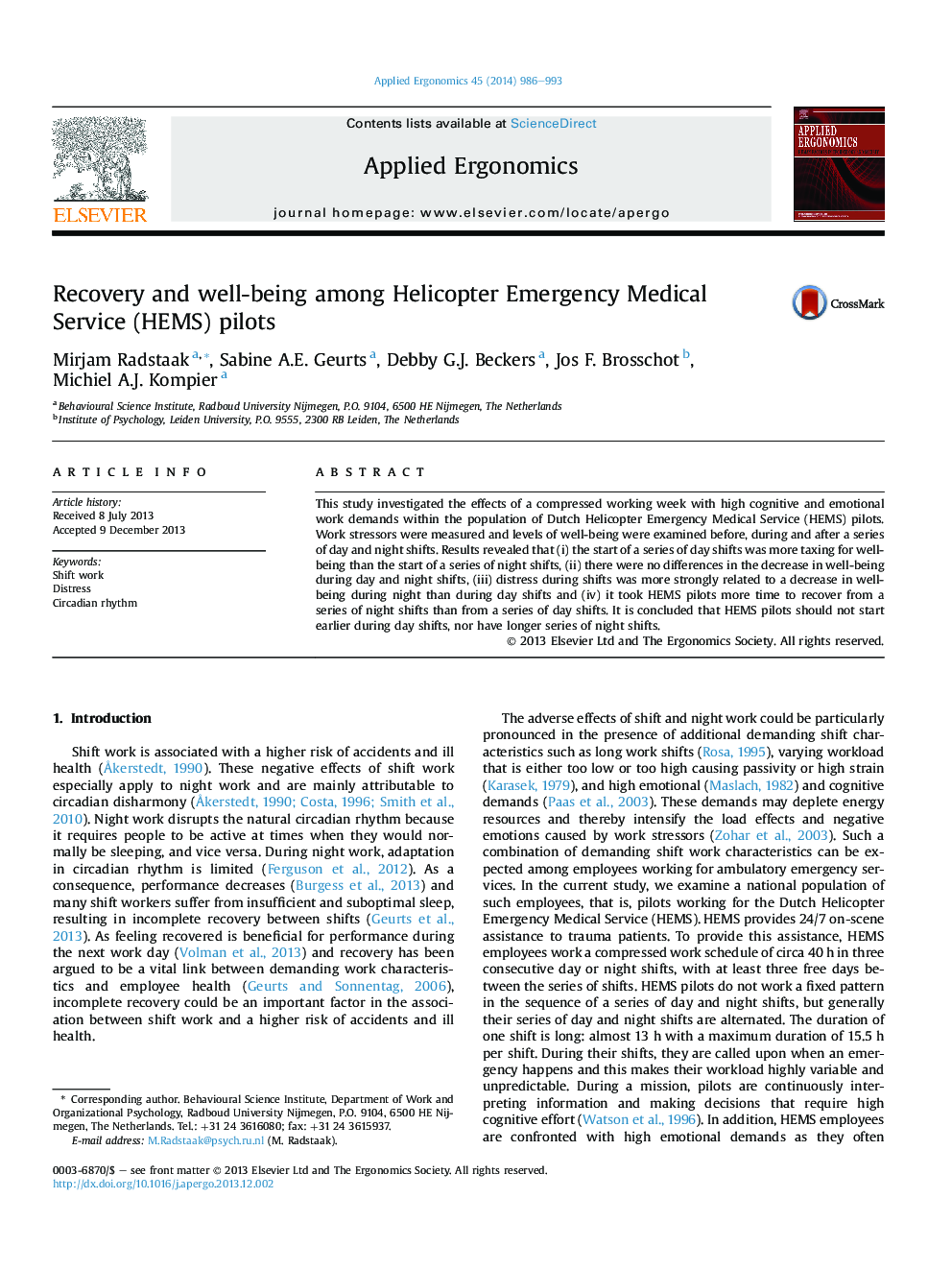| Article ID | Journal | Published Year | Pages | File Type |
|---|---|---|---|---|
| 10365885 | Applied Ergonomics | 2014 | 8 Pages |
Abstract
This study investigated the effects of a compressed working week with high cognitive and emotional work demands within the population of Dutch Helicopter Emergency Medical Service (HEMS) pilots. Work stressors were measured and levels of well-being were examined before, during and after a series of day and night shifts. Results revealed that (i) the start of a series of day shifts was more taxing for well-being than the start of a series of night shifts, (ii) there were no differences in the decrease in well-being during day and night shifts, (iii) distress during shifts was more strongly related to a decrease in well-being during night than during day shifts and (iv) it took HEMS pilots more time to recover from a series of night shifts than from a series of day shifts. It is concluded that HEMS pilots should not start earlier during day shifts, nor have longer series of night shifts.
Keywords
Related Topics
Physical Sciences and Engineering
Computer Science
Human-Computer Interaction
Authors
Mirjam Radstaak, Sabine A.E. Geurts, Debby G.J. Beckers, Jos F. Brosschot, Michiel A.J. Kompier,
